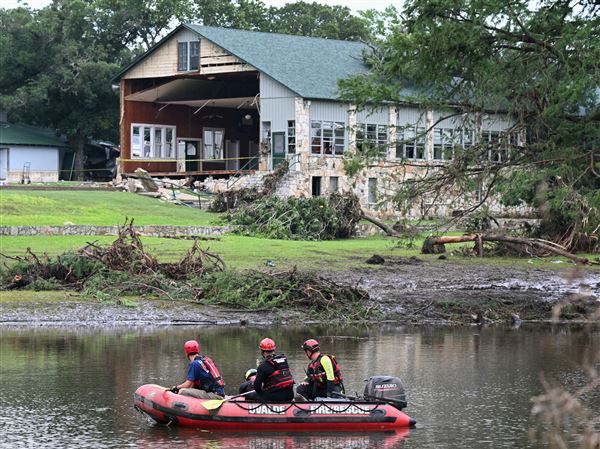Hispanics are nearly twice as likely as whites to be left without television service following the nationwide transition to digital broadcasting next year, according to a new survey.
Beginning in February 2009, full-power broadcast stations will transmit digital-only signals, meaning people who get their television programming over an antenna and do not have a digital set won't get a picture without a special converter box.
The Nielsen Co. survey released yesterday estimates that more than 13 million households in the United States receive television programming over the air on non-digital sets, meaning they will need converter boxes. Another 6 million households contain at least one television that fits that description.
Nielsen researchers found that 10.1 percent of all households would have no access to television signals if the transition occurred today. Broken down by race, 8.8 percent of whites would be unready; 11.7 percent of Asians; 12.4 percent of blacks; and 17.3 percent of Hispanics.
By age, of those 35 and younger, 12.3 percent rely solely on over-the-air broadcasts. Of those age 55 and older, 9.4 percent fall into that category.
The survey noted that 16.8 percent of all households have at least one analog television set that would not work after the switch.
The Nielsen survey was done as part of its overall television rankings forecast. The data was gathered by Nielsen staff who visited a national sample of roughly 15,000 homes. The survey took about 18 months to complete, according to the company.
Eric Rossi, leader of Nielsen's digital transition preparedness team, said much of the data fits with existing assumptions about the transition, although the fact that seniors are more ready than the younger people is "maybe one of the slightly unexpected results."
However, Rossi cautions, the age is based on the head of household. The survey does not include group quarters like retirement homes.
Rossi said the results also track closely with cable TV penetration rates. People who get cable or satellite service won't be affected by the transition.
The government is accepting requests for coupons to subsidize the cost of converter boxes for those who need them. Each household is eligible for two coupons worth $40 apiece, regardless of whether they have pay-television service or not. To request a coupon, consumers can apply at www.dtv2009.gov or call 1-888-DTV-2009 (1-888-388-2009).
The coupons expire three months from issue. Boxes are expected to be available in the next week at Best Buy, Wal-Mart, Radio Shack and other retailers. They are expected to range in price from $40 to $70.
(John Dunbar, Associated Press)
ABC Family has picked up a second season of its popular series "Greek" and ordered "Samurai Girl" as a six-hour programming event, it was announced last week.
"Greek" centers on college freshman Rusty (Jacob Zachar), who's determined not to continue on his bookish geekiness from his high school days. His solution is to enter the Greek system, but his older sister Casey (Spencer Grammer), a sorority siren, isn't too thrilled to have her little brother encroaching on her territory.
The second half of the show's first season will resume on March 24. Production on the next season will begin in early April with 12 of the episodes to air as part of the 2008-09 season. "Greek" is the network's most-watched original series by adults 18-24.
"Samurai Girl," based on the popular young adult novels, centers on 19-year-old Heaven (Jamie Chung), a Japanese girl who learns that her adoptive father is the head of the Yakuza and possibly had her brother murdered. She leaves her family to train in the ways of the samurai and to plot against her father's evil empire with the help of her new American friends.
Chung, 24, was a cast member on "Real World: San Diego" and appeared on "Days of Our Lives" and "Greek" and in the upcoming "Dragonball" movie.
First Published: February 18, 2008, 5:00 a.m.















